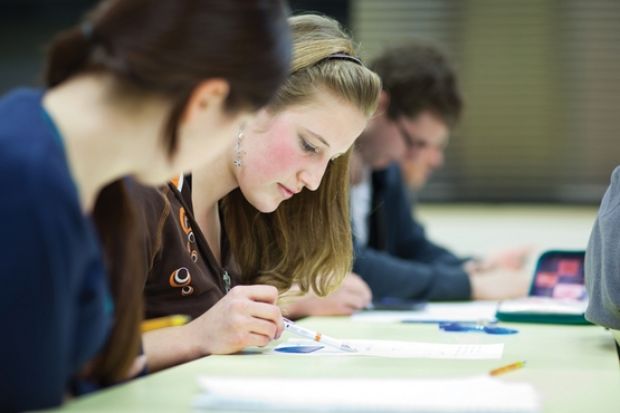Studying or socialising? Hepi report warns of workload discrepancies
The Quality Assurance Agency is to issue new guidance on student workloads after research found that English undergraduates study for only three-quarters of the hours it recommends.
A report by the Higher Education Policy Institute and consumer group Which? found that on average students work for 900 hours a year, far fewer than the 1,200 hours the QAA assumes are necessary for a degree, and calls on the watchdog and the government to investigate the issue.
The Academic Experience of Students in English Universities: 2013 Report, released on 15 May, also demands an explanation of why students at some universities have far less study time than at others.
At one institution, engineering and technology students study for 20.6 hours a week on average - including contact time, such as lectures - while at the other end of scale, their peers at another university study for 47.2 hours, the report says.
Bahram Bekhradnia, director of Hepi, said this was “disturbing” and raised “profound questions about relative standards” across the sector.
If some students worked only half the hours of their counterparts at rival universities, he asked, “is it plausible that they’ve achieved the same outcomes by the end of the study?” He added: “It may be plausible. It could be that a student in one university is brilliant and needs to do less study than another.”
But the 2007 edition of Hepi’s student academic experience report had found no evidence that students with more entry tariff points could thrive by doing less work, he said.
Regarding the issue of students doing far fewer hours than advised by the QAA, he explained: “Students will do as little as they can get away with and academics have other things to do with their time.
“We’ve known this for a while but the sector does need to get to grips with this question.”
Hepi’s equivalent report in 2012 warned that some university courses were only as time-consuming as part-time employment, but this is the first time the institute has called for an investigation into the discrepancies.
A spokeswoman for the QAA said that the agency was in the early stages of a project to provide “additional guidance” to students and institutions on areas including “student workload, class size, teaching qualifications and use of student feedback”.
In a separate development, the UK’s four higher education funding councils have commissioned a “fundamental” review of how the sector measures its performance.
Currently, universities collect data on the number of students from poor backgrounds, non-continuation and module completion rates, research output and graduate employment.
But a consultation, expected to report by July, will question whether these measurements are still “fit for purpose” and could recommend new national benchmarks.
There is already evidence that British students are underworked compared with their European counterparts. The UK came bottom out of 11 countries in a survey of student workloads released in 2009 by the Centre for Higher Education Research and Information at The Open University.
The issue of degree comparability hit the headlines the same year when a report by the Innovation, Universities, Science and Skills Committee found that the QAA focused “almost exclusively on processes, not standards”. It argued that the watchdog should be re-established as a body to ensure consistent national degree standards - a recommendation that was never implemented.
Register to continue
Why register?
- Registration is free and only takes a moment
- Once registered, you can read 3 articles a month
- Sign up for our newsletter
Subscribe
Or subscribe for unlimited access to:
- Unlimited access to news, views, insights & reviews
- Digital editions
- Digital access to THE’s university and college rankings analysis
Already registered or a current subscriber? Login




